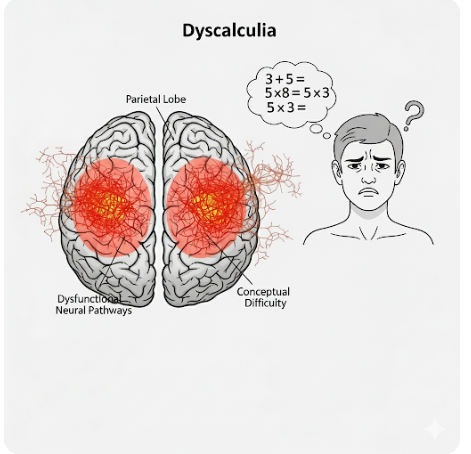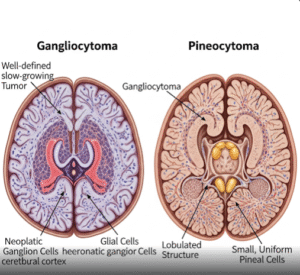Overview
Dyscalculia is a specific learning disorder that affects a person’s ability to understand numbers, perform calculations, and develop mathematical skills. In South Korea, with the emphasis on academic achievement, early identification and support for children with dyscalculia are crucial to prevent educational challenges and boost confidence in learning mathematics.
What is Dyscalculia?
Dyscalculia, often referred to as “math dyslexia,” is a neurological disorder where individuals struggle with number-related concepts, memorizing arithmetic facts, and performing basic calculations. It is not linked to overall intelligence, as individuals with dyscalculia can excel in other areas.
Symptoms
Symptoms of dyscalculia may include:
- Difficulty understanding number concepts and quantity
- Struggling with basic arithmetic operations (addition, subtraction, multiplication, division)
- Difficulty remembering mathematical facts
- Problems with time, measurement, and money concepts
- Confusion with symbols or numbers
- Avoidance of math-related tasks and low self-confidence in mathematics
Causes
The exact cause of dyscalculia is not fully understood, but it may result from:
- Differences in brain regions responsible for numerical processing
- Genetic factors affecting cognitive function
- Prenatal or perinatal complications impacting brain development
- Neurological conditions or developmental disorders
Risk Factors
Risk factors include:
- Family history of learning disabilities
- Premature birth or low birth weight
- Neurological or developmental disorders
- Lack of early exposure to numeracy in childhood
Complications
Without proper support, dyscalculia can lead to:
- Academic underachievement and difficulties in school
- Low self-esteem and frustration with learning
- Challenges in daily life activities involving numbers, such as budgeting or cooking
- Increased risk of anxiety related to math and learning
Prevention
While dyscalculia cannot always be prevented, early interventions help mitigate its impact:
- Early assessment and monitoring of numeracy skills in children
- Providing age-appropriate numeracy activities
- Encouraging supportive learning environments at home and school
Treatment Options in Korea
Treatment and support in South Korea focus on educational and therapeutic interventions:
Educational Support:
- Individualized education plans (IEPs) tailored for math learning
- Use of visual aids, manipulatives, and technology-assisted learning tools
- Specialized tutoring programs for numeracy development
Therapy:
- Cognitive remediation therapy to strengthen numerical and problem-solving skills
- Occupational therapy for related learning challenges and fine motor skills
Specialized Care:
- Developmental and educational psychologists in Korean schools and clinics assess and provide guidance for children with dyscalculia
- Collaborative programs between schools, therapists, and families ensure ongoing support
With early identification and targeted interventions in Korea, children with dyscalculia can develop effective math skills, enhance their learning confidence, and succeed academically.













